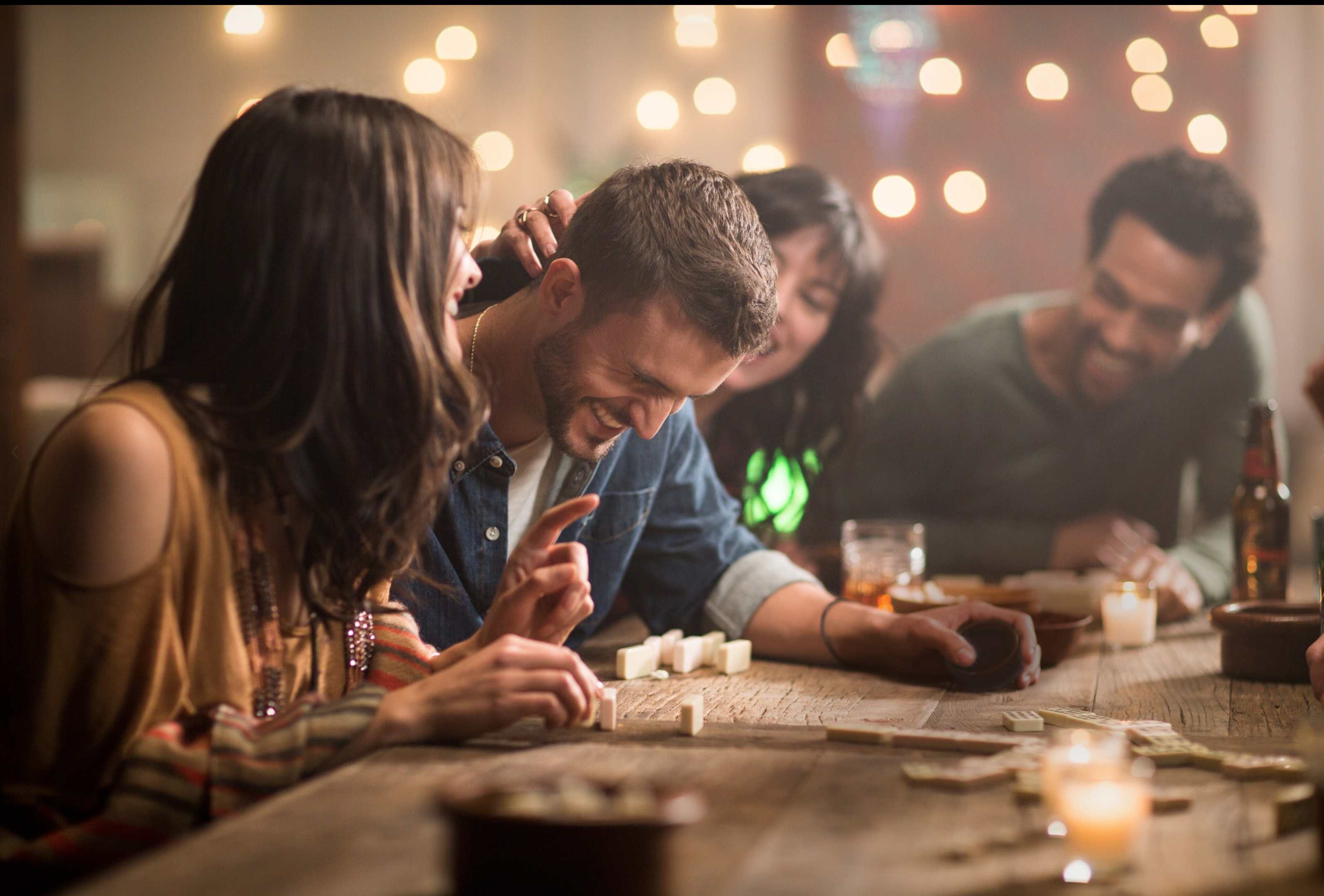

providing guidance + support
as the menu is created
Designed to activate Canopy Central in
the evening and offer a point of connection
between guests, enthusiasts, and
the community.
Beer & Wine
The evening tasting offering should rotate daily and feel exciting—dynamic, yet approachable at the same time. The brand vision for this program is that it is beverage driven and tailored specifically to each neighborhood. Enthusiasts and chefs should feel empowered to sample a new spirit from a local vendor or create interesting infusions using the day’s freshest products. Gain a sense of what feels right for your Canopy and use this opportunity to share it with guests. This guide is meant to help better explain what the evening tasting is about and offer resources to help you, the enthusiast, actualize it on a nightly basis. Get inspired and bring it to life!
Beer & Wine
Wines are to be catalogued in a pre-determined system, keeping the wine list presented to guests accurate. Wine offerings must feature a minimum of 2 sparkling, 6 white, 1 rosé, and 6 red wines. A wine list should feature local offerings, where available and relevant.
Note: Wines should be priced at 18% COGS with glass prices between $8-14. Bottles should be priced between $40 & $75
Beer in both the front and back of house is to be stored and maintained in climate-controlled areas. A beer list is to feature local offerings, where available and relevant. Beer offerings must feature a minimum of 4 bottled and 4 draft selections.
1 light-bodied lager, typical of “American Beer,” but no large brands (Budweiser, Coors etc.)
Examples: Narragansett Lager, Point Lager, Abita Light, Full Sail Session Lager
1 pilsner-style lager. Examples: Lagunitas Pils, Mama’s Little Yella Pils, Great Divide Nomad Pilsner, Schrimshaw Pils
1 Pale Ale, preferably local.
Examples: Deschutes Mirror Pond, Sierra Nevada, First City Chicago, Firestone Pale 31.
1 India Pale Ale (no double IPA).
Examples: Ballast Point Skulpin, Stone IPA, Dogfish Head 60 Minute IPA, Maine Beer Company Lunch IPA. Session IPA acceptable in place of Pale Ale
1 Stout (oatmeal/coffee stout ok).
Examples: Goose Island Bourbon Country Coffee Stout, Founders KB, Brooklyn Brewery Black Chocolate Stout
1 American Porter. Examples: Deschutes Black Butte Porter, Stone Smoked Porter, Maui Coconut Porter, Ballast Point Victory at Sea
1 European-style wheat beer (Hefeweizen).
Examples: Allagash White, Brewery Ommegang Witte, Avery Rascal
1 Local, when possible, varietal not from a major producer. Medium dry to dry. Can, single-serve bottle, or draft.
1 Local offering only. Choose a style from any category. Maximum time on menu: 3 months.

Glass: 1 Crèmant-style dry sparkling white wine. No prosecco.
Bottle: 1 Big producer champagne with a recognizable name.
Examples: Perrier Jouet, Ruinart Blanc de Blancs. No Veuve Clicquot. No high-priced bottles: Dom Perignon, Krug etc.
1 High-acid, approachable.
Examples: Albariño, Sauvignon Blanc, Vhino Verde
Medium-bodied.
Examples: Grüner Veltliner, Verdejo, Verdicchio
Full-bodied, fruit-forward.
Examples: unoaked / modestly-oaked Chardonnay, Chenin Blanc
Glass Red: 31 Thin-skin, light-bodied, dry.
Examples: Pinot Noir, Blaufränkish, Gamay
Medium-bodied; ABV around 12%, easy drinking with food or alone.
Examples: Cabernet Franc, Grenache, Sangiovese
Full-bodied, fruit-forward, high in alcohol.
Examples: Cabernet Sauvignon, Merlot, Syrah
1 Light-bodied, medium acid, medium sweetness (Provençal-style).
Examples: Grenache, Censault, Mourvèdre
Expand other categories with modestly pricier options.
Expand other categories with modestly pricier options.
Beer & Wine
Ensure a healthy mix of alcoholic and non-alcoholic offerings. Where possible, create an infusion that can be served in either form. Leverage local vendors and partners to present new or small batch spirits. Serve tastes of cocktails off the Canopy Central menu to encourage guests to stay for a drink. Highlight a specific ingredient or process that features prominently in what is on offer that evening. Ensure that enthusiasts can speak to the local product story and connection to community. Think about programming small bites and other unique food pairing moments. Use the evening tasting as an opportunity to educate guests. Tell them about what is being sampled, but also about the brand and its key pillars.
Beer & Wine
Spirit tastings curated by local vendors / distillers
Wine & chocolate pairings
Sips from the Canopy Central signature cocktail menu
Smoked spirits & aged cocktails
Tasting rosé champagne
Tea infusions & afternoon biscuits / non-alcoholic
Spiked spicy hot chocolate
Beer from local breweries & craft micro-batches
While the tasting is intended to be beverage forward, it represents an opportunity to build in light food pairings to complement. Think a small bite, savory or sweet, that works in concert with the evening’s offering. Put together, this pairing will not only enhance the evening tasting overall, but will make it resonate with guests in an even more impactful way.